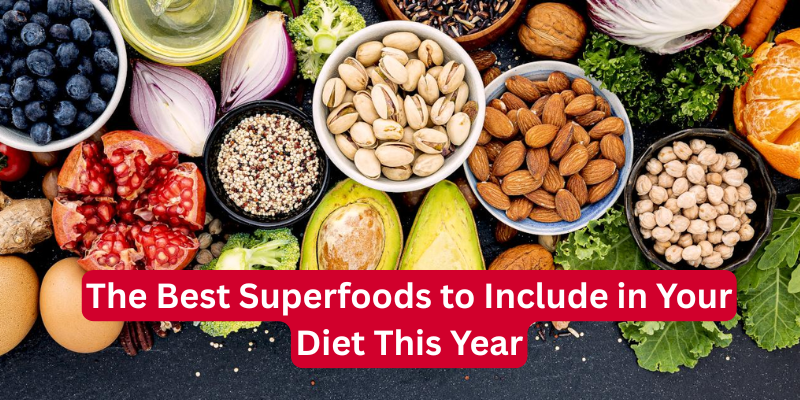Superfoods aren’t just a trend—they’re nutrition powerhouses that pack in vitamins, minerals, and antioxidants with minimal calories. In 2025, health-conscious eaters are turning to a new wave of nutrient-dense foods to support immunity, brain function, energy, and digestion. Here are the top superfoods you should start adding to your plate today.
1. Chia Seeds: Tiny Seeds, Major Benefits
Chia seeds are packed with fiber, omega-3 fatty acids, and protein. They’re also great for hydration as they absorb up to 10x their weight in water.
How to Use:
- Add to smoothies or overnight oats
- Sprinkle on salads
- Mix with yogurt or plant-based milk for chia pudding
2. Spirulina: The Algae That Works Wonders
Spirulina is a blue-green algae rich in protein, iron, and B vitamins. It’s known for boosting energy and detoxifying the body.
Top Benefits:
- Powerful antioxidant and anti-inflammatory
- May reduce blood pressure
- Supports muscle strength and endurance
Pro Tip: Use it in smoothies or capsules.
3. Blueberries: The Ultimate Antioxidant Boost
Blueberries remain one of the most popular and accessible superfoods. They’re loaded with antioxidants that support brain health and combat aging.
Why They’re Great:
- Improve cognitive function
- Aid in digestion
- Help fight oxidative stress
Fresh or frozen—they’re always good.
4. Quinoa: A Complete Protein Grain
Quinoa is a gluten-free grain that’s one of the few plant foods to contain all nine essential amino acids.
Nutritional Highlights:
- High in protein and fiber
- Supports heart health
- Great alternative to rice or pasta
Perfect in salads, bowls, or as a breakfast porridge.
5. Avocados: Healthy Fats Done Right
Avocados are rich in heart-healthy monounsaturated fats, fiber, and potassium. They also help absorb fat-soluble vitamins from other foods.
Ways to Enjoy:
- Spread on toast
- Add to salads, smoothies, or sandwiches
- Make guacamole
6. Turmeric: The Golden Anti-Inflammatory
Turmeric contains curcumin, a compound known for its anti-inflammatory and antioxidant effects.
Best Used With: Black pepper (to enhance absorption)
Uses:
- In lattes, soups, or curries
- As a supplement
7. Fermented Foods: Gut Health Heroes
Foods like kimchi, sauerkraut, miso, and kefir are rich in probiotics that support digestive and immune health.
Why They’re Essential:
- Improve gut flora
- Enhance nutrient absorption
- Support mental health through the gut-brain axis
8. Dark Leafy Greens: Nature’s Multivitamin
Kale, spinach, and swiss chard are packed with vitamins A, C, K, iron, and calcium. They also support liver health and detoxification.
Best Uses:
- Sautéed, steamed, or raw in salads
- Add to smoothies or wraps
5 Most Common Questions About Superfoods in 2025
Q1: What makes a food a ‘superfood’?
Answer: A superfood is typically rich in nutrients (like vitamins, minerals, antioxidants) and offers significant health benefits with minimal calories. They’re not a magic fix, but they enhance a balanced diet.
Q2: Are superfoods suitable for everyone?
Answer: Most superfoods are safe and beneficial for general consumption. However, people with allergies, kidney issues, or specific conditions should consult a healthcare provider.
Q3: Can I lose weight by eating superfoods?
Answer: Superfoods can support weight loss as part of a balanced diet by boosting metabolism, reducing inflammation, and improving digestion—but they’re not a standalone solution.
Q4: What’s the easiest way to start including superfoods?
Answer: Start small—add chia seeds to your breakfast, throw spinach in your smoothie, or enjoy a handful of berries as a snack.
Q5: Are superfood supplements as effective as whole foods?
Answer: Whole foods are typically better due to fiber and nutrient synergy. However, supplements can be convenient when whole foods aren’t available.





